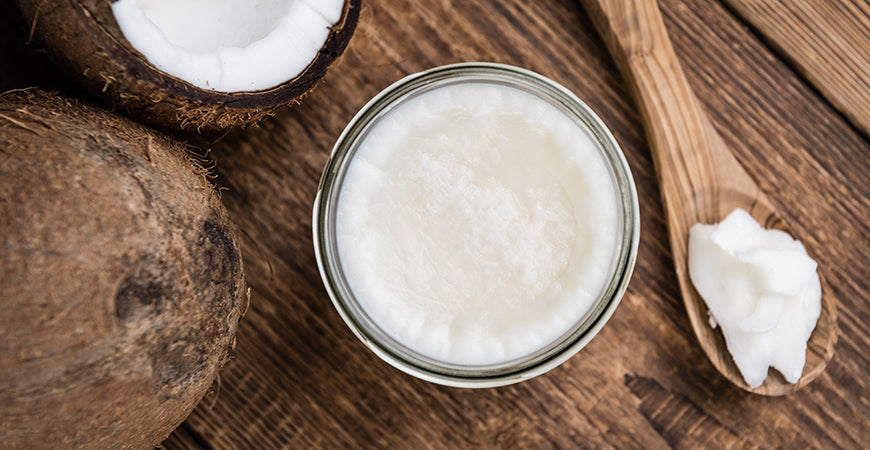on all US orders over $99
on all US orders over $99

The American Heart Association is in the news, causing controversy over coconut oil in their recently released study on dietary fats and heart disease. The media backlash has been so big it’s been dubbed “Coconut Gate.” For more than 10 years, coconut oil has been heralded as a superfood and is a staple in the diets of many health conscious people. Now the AHA is recommending it be avoided because of its saturated fat content and effects on cholesterol. So what is the truth – superfood or super villain?
A study from the New England Journal of Medicine shows 50% of media headlines about medical studies are completely wrong. So the hype you’re hearing about coconut oil is nothing more than old news with a new spin that’s not based on facts. It doesn’t change the truth: there has never been a study done that shows coconut oil causes heart disease.
We reached out to the First Lady of Nutrition, Ann Louise Gittleman, and she summarized it best: “All things considered, the AHA was using antiquated data to bolster a biased view.” This AHA study is a meta-analysis, which means they analyzed data from several studies done in the past to see if compiling them together would generate new conclusions. Studies included reached as far back as the 1950s, and even included studies on monkeys. With thousands of studies done on cholesterol and dietary fats, it appears they scraped the bottom of the barrel to put together a collection of studies to support their outdated view that all saturated fats cause heart disease by raising unhealthy LDL cholesterol levels.
Studies on nutrition are observational, which means participants record what they eat and then are followed for the effects of their diet on health. There are a couple of serious problems with this approach. First, depending on how guilty they feel over what they ate, study participants may report more or less than they actually ate of a food that’s being studied. For instance, back when butter was the nutrition villain of the day, a study participant might say they used margarine on their baked potato when in reality it was butter, in order to appear more health conscious.
Second, even though the media will try to convince you otherwise, these studies don’t show cause and effect. For example, you can do a study that shows texting and driving causes more deaths today than it did in the 1920s, but it doesn’t reflect the true cause being advances in technology. Several meta-analyses have been done showing the lack of cause-and-effect relationship between dietary cholesterol and heart disease. This is the reason the very conservative 2015 USDA Dietary Guidelines for Americans removed the upper limits on dietary fats and eliminated restrictions on dietary cholesterol. They simply stated “Cholesterol is not a nutrient of concern for overconsumption” which leaves you free to enjoy the eggs and shellfish that you were told to avoid for decades, and even the recently maligned coconut oil.
Coconut oil is high in Medium Chain Triglycerides (MCTs). These fats are burned for energy, the body can store very little as fat. This type of fat actually helps your body burn fat. The MCTs in coconut oil help balance our hormones, improve cognition and memory, boost our immunity and fight infections, soothe inflammation in joints and intestines, and decrease appetite while normalizing insulin levels.
Interestingly, countries with the highest rates of coconut oil consumption have some of the lowest rates of heart disease. Coconut oil is shown to increase healthy cholesterol levels and improve cholesterol ratios, even in the studies included in the AHA meta-analysis. The AHA did not include this effect from any of the oils in its study, claiming irrelevance.
Not all coconut oil is equal. Coconut oil is a superfood only when it is unrefined, or “virgin.” This means it’s extracted from fresh, ripe coconuts without using high heat or chemicals. Refined coconut oil is made from dried coconut meat that’s chemically bleached and deodorized. Partially hydrogenated coconut oil contains trans fats and is no better than a fast food cheeseburger.
Leave a comment